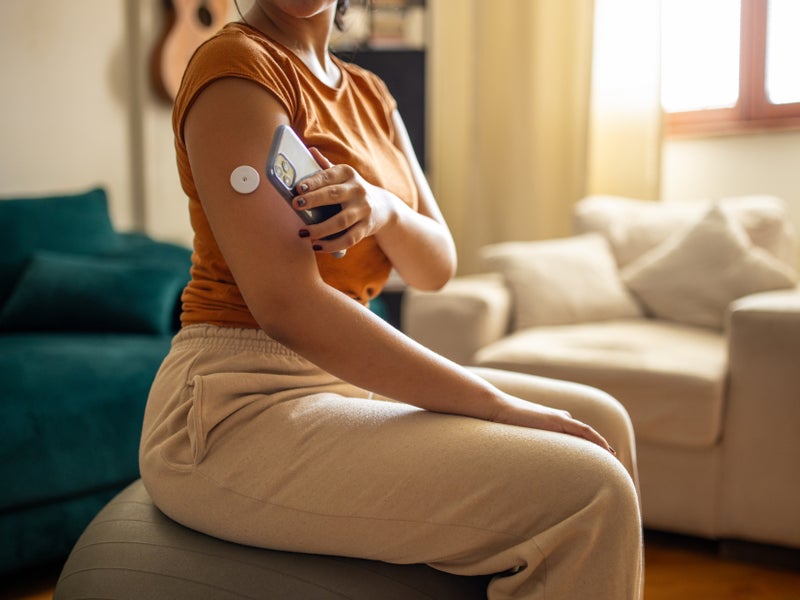Chances are, if you’ve been diagnosed with PCOS, someone will have recommended Metformin to you. They certainly did in my case and, because I was pigheaded and didn’t quite understand what the potentially benefits of taking it might be, I avoided it for the first fifteen years after being told I had the condition. For those of you who aren’t well acquainted with PCOS, it’s short for Polycystic Ovary Syndrome, which is a hormonal disorder that’s diagnosed by the presence or two or more of the 13 per cent of women of a reproductive age, and if you want a celeb poster girl: Victoria Beckham has spoken at length about having it.

Many medical conditions come if not with a cure than at least a fairly firm rule book of how to handle them. Not so PCOS, which is why I was reluctant to take the Metformin, a medication which is used to manage type 2 diabetes, but has been shown to be useful in the management of symptoms. Various doctors have brought it up to me over the years without really driving home what it would do in practical terms for my PCOS, so I soldiered on with holistic measures to try to offset the worse bits.
![[Best hormone regulation supplements to restore balance]](https://static.standard.co.uk/2025/02/11/15/52/Pamella-Roland-bks-F25-067.jpeg?crop=8:5,smart&quality=75&auto=webp&width=960)
These will vary for everyone but for me that meant painful periods (to the extent where generally on day one I’d have to take two paracetamols alongside two ibuprofens, even though not advisable, to get me out the clutches of cramps), skin that was prone to erupting in spots if I upset it even slightly by going on a big night out or by getting on a long haul flight, and quite intense sugar wobbles if I ate anything sweet.
![[10 effective ways to treat polycystic ovary syndrome]](https://static.standard.co.uk/2024/07/16/17/33/How-to-reduce-PCOS-symptoms.jpg?crop=8:5,smart&quality=75&auto=webp&width=960)
Pigheadedness about trying to resolve it by other means aside, I had a second reason for dodging the most popular medication for treating the disorder: there’s a period of adjustment to getting used to Metformin, one of the symptoms of which can include nausea and, as someone with emetophobia (an extreme fear of vomiting), I was nervous about facing that. Out of excuses, I took my first Metformin pill last August. At first, my body took a little while to adjust; I did feel sick (though fortunately not to the extent where I worried it would happen bar on one occasion, more a general feeling of being a little peaky), and lost my appetite for anything but the smallest of portions.
![[Did you manage Dry January? The expert guide to staying motivated and alcohol-free for longer]](https://static.standard.co.uk/2025/02/07/14/01/woman-1064664_1280.jpeg?crop=8:5,smart&quality=75&auto=webp&width=960)
After two weeks, that had levelled out, and at around that time, I got my period. My period is usually An Event. Once dosed up on painkillers, I generally writhe around in pain while watching Friends to soothe me. Not this time; two paracetamols did the trick of kicking my cramps, and I felt if not normal than functional. While my skin’s remained as easily-angered as ever, there’s been another huge shift that I didn’t expect: my blood sugars being stable means I don’t fancy sugar much at all. In fact, I’d go so far as to say when I still eat it, I do it out of a weird loyalty to sugar that is clearly emotional versus any physical desire. That’s huge; PCOS suffers famously struggle to keep fat to a minimum for various reasons, one of which is the absolute desire to mainline sugar.
![[The surprising £1 ingredients that can boost dopamine and transform your diet]](https://static.standard.co.uk/2025/02/14/14/36/pulses-4760708_1280.jpeg?crop=8:5,smart&quality=75&auto=webp&width=960)
So, yes, work still to do on my psychological desire for sugar, but at least my body is resisting it on my behalf thanks to the Metformin, which, to be quite frank, I’d take for the less painful periods alone. Metformin is primarily a medication used to manage type 2 diabetes, but it works in a way that can benefit a range of conditions, particularly those linked to insulin resistance. Essentially, Metformin helps improve your body's sensitivity to insulin, meaning that your cells are better able to absorb glucose from the blood. It also decreases the liver's production of glucose, which helps to lower overall blood sugar levels. This has been linked to a lower risk of age-related diseases, potentially contributing to a longer, healthier life.
PCOS, or polycystic ovary syndrome, often comes with issues like irregular periods, excess androgen levels, and insulin resistance. Insulin resistance is common in PCOS and can lead to higher levels of insulin in the bloodstream, which can exacerbate hormonal imbalances. By improving insulin sensitivity, Metformin helps to reduce these high insulin levels, which in turn can help regulate menstrual cycles, reduce excess hair growth (hirsutism), and improve fertility in some cases. It also helps reduce the risk of developing type 2 diabetes, which is more common in people with PCOS.
The benefits of Metformin can vary from person to person, but in general, you might start to notice more regular menstrual cycles within a few months. This can also lead to improvements in ovulation and fertility. Other improvements may include better energy levels, clearer skin (due to reduced androgen levels), and a reduction in symptoms like acne or excessive hair growth. In addition to hormonal balance, Metformin may help reduce systemic inflammation and improve metabolic health, which are key factors in aging well. However, the full impact can take time, so it's important to be patient, as hormonal balance and insulin sensitivity don't change overnight.































